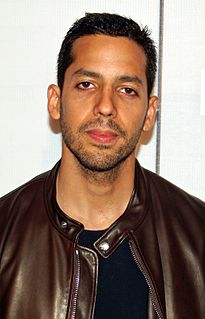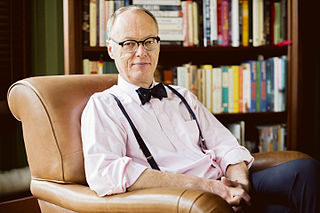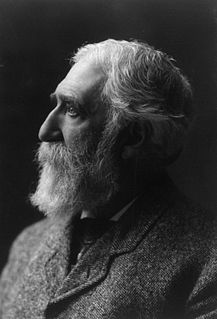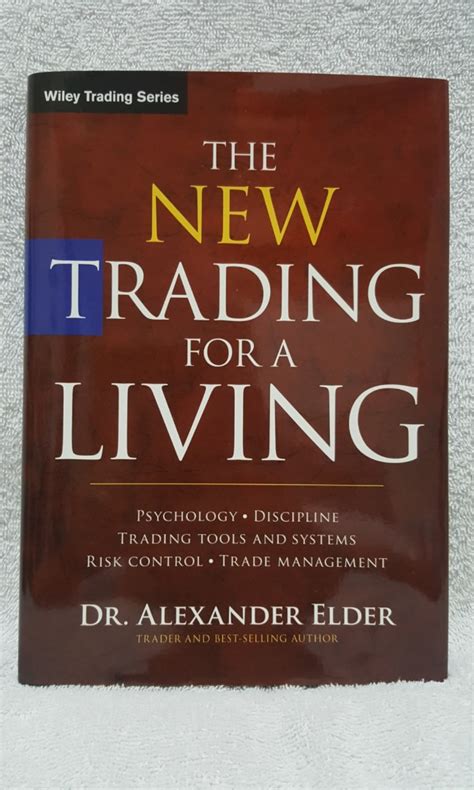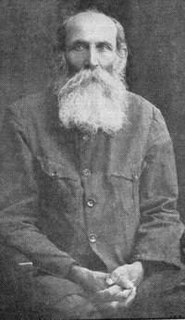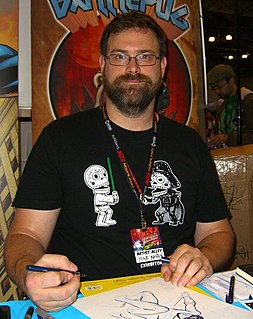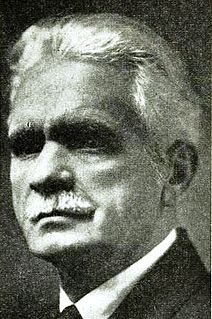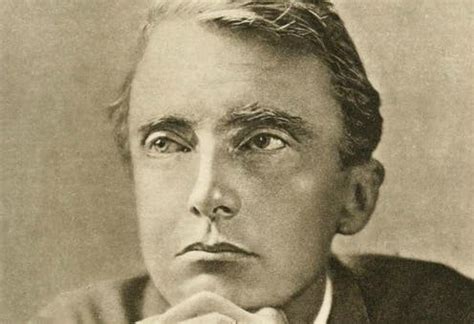Top 487 Digging Ditches Quotes & Sayings - Page 8
Explore popular Digging Ditches quotes.
Last updated on November 18, 2024.
Corsets do look so pretty. Once I watched it, I was like, "Well, they do look nicer than the way I do normally," but they're really uncomfortable. You start to realize why women would pass out. We had the real ones, and they were just awful. At one point, I was like, "I think that's my spleen that this is digging into." So, if I had a nightgown, that was always really comfy. I had a few coats that I thought were pretty cool.
What is new, however, is always evil, being that which wants to conquer and overthrow the old boundary markers and the old pieties; and only what is old is good. The good men are in all ages those who dig the old thoughts, digging deep and getting them to bear fruit - the farmers of the spirit. But eventually all land is depleted, and the ploughshare of evil must come again and again.
In the world of globalization, the fossil fuel masters of the universe who are digging up our boreal forest and our muskeg and scraping out the bitumen would rather have Canadians take all the risks - and then the oceans take the risks to ship it to refineries that they've already built in other countries rather than create jobs for Canadians here.
In my twenties I would be skeptical of a bad haircut, but once you turn thirty it's more about whether he a nice person and does he open the door for me. Once you turn thirty-five, it's more about would he make a good father. And even if you're just liking somebody and digging on someone, I think you can't help but think in those terms.
To most magicians, cards themselves are marvels...For one thing, they feel special in your hand. Touching them, holding them, shuffling - the whole process is almost poetic. If you're in a room full of magicians and someone just mentions the word cards, within seconds, everyone is digging into their pockets and pulling out a deck of cards. It's one of the most amazing feelings ever.
Our bodies and minds evolved and were adapted for hundreds of thousands of years for tasks like climbing a tree and picking apples, or hunting rabbits, or looking for mushrooms in the forest. They were not adapted to the very gruelling work that is involved in field work - ploughing, harvesting, bringing water, digging weeds - things like that.
I noticed the plants growing around me. Tall with leaves like arrowheads. Blossoms with three white petals. I knelt down in the water, my fingers digging into the soft mud, and I pulled up handfuls of the roots. Small, bluish tubers that don’t look like much but boiled or baked are as good as any potato. “Katniss,” I said aloud. It’s the plant I was named for. And I heard my father’s voice joking, “As long as you can find yourself, you’ll never starve.
The humblest observer who goes to the mines sees and says that gold-digging is of the character of a lottery; the gold thus obtained is not the same thing with the wages of honest toil. But, practically, he forgets what he has seen, for he has seen only the fact, not the principle, and goes into trade there, that is, buys a ticket in what commonly proves another lottery, where the fact is not so obvious.
I was lucky to wander into evolutionary theory, one of the most exciting and important of all scientific fields. I had never heard of it when I started at a rather tender age; I was simply awed by dinosaurs. I thought paleontologists spent their lives digging up bones and putting them together, never venturing beyond the momentous issue of what connects to what. Then I discovered evolutionary theory. Ever since then, the duality of natural history-richness in particularities and potential union in underlying explanation-has propelled me.
Life is brimming with things to be discovered and known, skills to be mastered, challenges to be overcome. And when you are discouraged, dig a hole in the earth and think of the possibilities. So many things can be planted in your lifetime, skills that once mastered will bear fruit forever. . . . Pluck up some enthusiasm for the business of life, for the loamy matter that supports us all. Become a handyman and spread your skills wide, digging deeper into the earth's crust to uncover its secrets.
I've never met a girl who thinks like you." "A lot of people tell me that," she said, digging at a cuticle. "But it's the only way I know how to think. Seriously. I'm just telling you what I believe. It's never crossed my mind that my way of thinking is different from other people's. I'm not trying to be different. But when I speak out honestly, everybody thinks I'm kidding or playacting. When that happens, I feel like everything is such a pain!
There comes a time when a man finds himself in front of a dark uncrossable abyss, which he himself has spent years digging. He cannot go forward, and has no way back. Words have failed, tears won't help, and who would he call out to? He can't even remember his own name. Then the man sees that on this god's green earth there is but one true suffering: the torment of guilty conscience.
Any fitness expert will tell you that a strong core is the start to a strong and healthy body. The same is true with our identities. It's about strengthening our core, which requires digging past all of the surface identities that crowd our nametags and remembering that at the deepest level we are God's masterpiece. The stronger our knowledge of the core of who we are, the better we'll be able to deflect the old names and false identities that try to own us.
With the disappearance of the future, the only thing that remains in your hands is now. Then you can go deep into this now - whatsoever you are doing. You can be eating or dancing or making love to a woman or singing or digging a hole in the ground - whatsoever you are doing. This is the only time you have, why not do it totally? Why not celebrate it? Celebration and being total mean the same thing. You celebrate only when you are total in something, and when you are total in something you celebrate it.
By analyzing data from Greenwich Observatory in the period 1836-1953, John A. Eddy [Harvard-Smithsonian Center for Astrophysics and High Altitude Observatory in Boulder] and Aram A. Boornazian [mathematician with S. Ross and Co. in Boston] have found evidence that the sun has been contracting about 0.1% per century during that time, corresponding to a shrinkage rate of about 5 feet per hour. And digging deep into historical records, Eddy has found 400-year-old eclipse observations that are consistent with such a shrinkage.
If there is anything worse than the aching tedium of staring out of car windows, it is the irritation of getting tickets, packing, finding trains, lying in bouncing berths, washing without water, digging out passports, and fighting through customs. To live in Carlsbad is seemly and to loaf at San Remo healing to the soul, but to get from Carlsbad to San Remo is of the devil.
He's at ease, his body sculpted to the music, his shoulder searching the other shoulder, his right toe knowing the left knee, the height, the depth, the form, the control, the twist of his wrist, the bend of his elbow, the tilt of his neck, notes digging into arteries, and he is in the air now, forcing the legs up beyond muscular memory, one last press of the thighs, an elongation of form, a loosening of human contour, he goes higher and is skyheld.
I say this in the book [Today Matters], we either spend our day repairing or preparing, and if I haven't taken good care of my today's, they accumulate. So all of a sudden today what I'm doing is I'm going back, I'm repairing bad relationships and wrong decisions, and I'm digging a hole. I'm not making any progress because I'm in a repairing mode, versus if I really make today count that prepares me for tomorrow. Tomorrow really will take care of itself if I do the right thing today.
I see young men, my townsmen, whose misfortune it is to have inherited farms, houses, barns, cattle, and farming tools; for these are more easily acquired than got rid of. Better if they had been born in the open pasture and suckled by a wolf, that they might have seen with clearer eyes what field they were called to labor in. Who made them serfs of the soil? Why should they eat their sixty acres, when man is condemned to eat only his peck of dirt? Why should they begin digging their graves as soon as they are born?
Indiana Jones: Archaeology is the search for fact... not truth. If it's truth you're looking for, Dr. Tyree's philosophy class is right down the hall. ... So forget any ideas you've got about lost cities, exotic travel, and digging up the world. We do not follow maps to buried treasure, and "X" never, ever marks the spot. Seventy percent of all archaeology is done in the library. Research. Reading.
Tell me what game Steph Landry and I used to play in the big dirt pile they made while they were digging my family’s pool, back when we were both seven, or I’ll know you’re an alien replacement and you’ve got the real Steph up in your mother ship!” I glared at him. “G.I. Joe meets Spelunker Barbie,” I said. “And stop being so ridiculous. We have to go. We’re going to end up at a bad table for lunch.
One of the biggest things going on in London, Amsterdam, San Francisco, and New York right now is gentrification. Every major city is dealing with gentrification, and it's always the sex workers they come for first. Cities feel they have to clean up their image and make themselves more attractive for tourism, more attractive to businesses. The Gezi Park struggle in Turkey a few years ago, for example, was a popular movement defending public space and land. What I found when I was digging into the goings on there was that the park was a place where transgender sex workers felt safe.
Often, I'm spending months with a person in a very intimate context, getting to know the ins and outs of what they ate for breakfast, not to mention dredging up the most traumatic experiences of their lives, digging through their documents and photographs from difficult times, all of that. And that process, I think, can be extraordinarily strange for subjects who've never been interviewed before, especially if you don't acquaint them from the get-go with what you're trying to do, what it entails, and why you care.
A lot of people ask, "What do you pull on in your own life from your character?" In all honesty, it's not something that really works that way for me. I tend to look at these things as an imaginative process and a challenge of imagination and empathy, to some degree. I get much more out of meeting people who have lived these lives than I do digging around in my own limited experiences.
Barna is correct when he writes, "After fifteen years of diligent digging into the world around me, I have reached several conclusions about the future of the Christian church in America. The central conclusion is that the American church is dying due to lack of strong spiritual leadership. In this time of unprecedented opportunity and plentiful resources, the church is actually losing influence. The primary reason is the lack of leadership. Nothing is more important than leadership."7
I think a lot of people, not all of them, but a bunch of TV people put Donald Trump on television thinking he's making a fool of himself and thinking that he's making a fool of the GOP. I think early on that's what the Republican establishment thought. "Oh, let's hear more of this guy. He's just helping us left and right. He's digging his own grave here."
I got a rejection letter from an editor at HarperCollins, who included a report from his professional reader. This report shredded my first-born novel, laughed at my phrasing, twirled my lacy pretensions around and gobbed into the seething mosh pit of my stolen clichés. As I read the report, the world became very quiet and stopped rotating. What poisoned me was the fact that the report's criticisms were all absolutely true. The sound of my landlady digging in the garden got the world moving again. I slipped the letter into the trash... knowing I'd remember every word.
Simplicity is the ultimate sophistication. It takes a lot of hard work to make something simple, to truly understand the underlying challenges and come up with elegant solutions. [...] It's not just minimalism or the absence of clutter. It involves digging through the depth of complexity. To be truly simple, you have to go really deep. [...] You have to deeply understand the essence of a product in order to be able to get rid of the parts that are not essential.
There's a marvelous sense of mastery that comes with writing a sentence that sounds exactly as you want it to. It's like trying to write a song, making tiny tweaks, reading it out loud, shifting things to make it sound a certain way... Sometimes it feels like digging out of a hole, but sometimes it feels like flying. When it's working and the rhythm's there, it does feel like magic to me.
The State exists simply to promote and to protect the ordinary happiness of human beings in this life. A husband and wife chatting over a fire, a couple of friends having a game of darts in a pub, a man reading a book in his own room or digging in his own garden-that is what the State is there for. And unless they are helping to increase and prolong and protect such moments, all the laws, parliaments, armies, courts, police, economics, etc., are simply a waste of time.
And it's been a process of digging through the songs and trying to make them born on stage again. I think they are very different. I think they come off very differently. I think they come off, I don't know if it's masculine or outward, extroverted than introverted. I didn't know. It's just been a process.
I would rather have as my patron a host of anonymous citizens digging into their own pockets for the price of a book or a magazine than a small body of enlightened and responsible men administering public funds. I would rather chance my personal vision of truth striking home here and there in the chaos of publication that exists than attempt to filter it through a few sets of official, honorably public-spirited scruples.
I'm kind of a creature of the alt-weekly universe - my real education into higher culture was acquired in coffee shops, reading those papers, digging into that lively mishmash of opinion for drift, a sense of what to see, what to hear, what to read, etc. - and I'd like to think that scene's still vital, although I understand there's been a fair amount of conglomerating, which would seem to undercut its radical roots, its funky local flavor. I'd encourage any writer with an eye for life and an ear for prose to give it a try. You can work out your chops just fine in newsprint.
I think we can learn a lot about a person in the very moment that language fails them. In the very moment they they have to be more creative than they would have imagined in order to communicate. It's the very moment that they have to dig deeper than the surface to find words, and at the same time, it's a moment when they want to communicate very badly. They're digging deep and projecting out at the same time.
What you do in the present—by painting, preaching, singing, sewing, praying, teaching, building hospitals, digging wells, campaigning for justice, writing poems, caring for the needy, loving your neighbor as yourself—will last into God’s future. These activities are not simply ways of making the present life a little less beastly, a little more bearable, until the day when we leave it behind altogether. They are part of what we may call building for God’s kingdom.
My wife Ann and I had been digging during the day, transplanting lilies from the front of this abandoned farmhouse back down the road to where we live. We finished. She was tired and laid in the grass. I took a picture. The house is now gone. The walnut trees have been bulldozed and burned. I saw this picture the other day for the first time in years and realized how photographing life within a hundred yards of my front porch had helped me focus on everything I cared about.
Intentions are a lot like seeds. You shove them into the ground, and every once in awhile, you water them. Largely, the seed does most of the work on its own. If, on one hand, you were digging the seed up several times a day to see what progress was being made, the seed would not take purchase in the soil. On the other hand, if you completely ignored it, giving no water or nourishment to the soil, the seed might not thrive.
We are often told we are materialistic. It seems to me, we are not materialistic enough. We have a disrespect for materials. We use it quickly and carelessly. If were genuinely materialistic people, we would understand where materials come from and where they go to. But, at the moment, the entire global economy seems to be built on the model of digging things up from one hole in the ground on one side of the earth, transporting them around the world, using them for a few days, and sticking them in a hole in the ground on the other side of the world.
God is not merely at your fingertips but within your grasp. Live each day like a child digging through an antique treasure chest rifling for the next discovery. Open your arms and your eyes to the God who stands in plain sight and works miracles in your midst. Look for him in your workdays and weekends, in your meeting-filled Mondays and your lazy Saturdays. Search for him in the snowy sunsets and Sabbaths, seasons of Lent and sitting at your table. Pray for—and expect—wonder. For when you search for God, you will discover him.
I stood looking down through the beech trees. When I threw a stone I could count to five before the splash. Then I jumped in a rush of gold to the head, through black and cold, red and cold, brown and warm, giving water the weight and size of myself in order to imagine it, water with my bones, water with my mouth and my understanding. When my body was in some way a wave to swim in, one continuous fin from head to tail, I steered through rapids like a canoe, digging my hands in, keeping just ahead of the river.
I don't think the Internet is necessarily a dangerous place. It's only dangerous if you don't make people earn your trust. You can't take people at their word. You got to do a little digging and make sure to verify that you are talking to a real person or the person that you think you're talking to.
The Constitution has to be interpreted loosely, otherwise it becomes a straitjacket. You can't interpret it literally. You can pretend to, and go digging around in 18th Century dictionaries to figure out what 'cruel and unusual punishment' meant or what the 'right to bear arms' meant, but that is all fake really. The Constitution has to be interpreted in light of modern needs, and that's what they (the strict interpreters) end up doing in spite of all their investigations.
Archetypes resemble the beds of rivers: dried up because the water has deserted them, though it may return at any time. An archetype is something like an old watercourse along which the water of life flowed for a time, digging a deep channel for itself. The longer it flowed the deeper the channel, and the more likely it is that sooner or later the water will return.
About writing I learned that always, always, always it's necessary to haunt your settings. I'm a big researcher. All my fiction is based on tons of digging. But the vital importance of actually traveling to the settings of a novel really hit me. And it's not just the setting details, not just the visuals and other sensory data, that will pop. You'll find surprising clues that swerve your story in whole new, deeper, surprising, more organic ways.
The love of dirt is among the earliest of passions, as it is the latest. Mud-pies gratify one of our first and best instincts. So long as we are dirty, we are pure. Fondness for the ground comes back to a man after he has run the round of pleasure and business, eaten dirt, and sown wild oats, drifted about the world, and taken the wind of all its moods. The love of digging in the ground (or of looking on while he pays another to dig) is as sure to come back to him, as he is sure, at last, to go under the ground, and stay there.
I remember getting hit in the ribs when I was on about eight or nine in my first game, and everyone rushed over, quite concerned. The umpire said to me afterwards, 'If anyone had appealed I would have had to give you out LB!' I ended that innings about nine not out off about 15 overs. I was already digging in - Yorkshire style.
Gundar seemed to come to a decision. "Well, as my old mam used to say, if it looks like a duck and quacks like a duck and walks like a duck, it's probably a duck." "Very wise," Halt said. "And what exactly do your mother's words of wisdom have to do with this situation?" Gundar shrugged. "It looks like a channel. It's the right place for a channel. If I were digging one, this is where I'd dig a channel. So. . ." "So it's probably the channel?" Selethen said. Gundar grinned at him. "Either that or it's a duck.
Most private traders on a losing streak keep trying to trade their way out of a hole. A loser thinks a successful trade is just around the corner, and that his luck is about to turn. He keeps putting on more trades and increases his size, all the while digging himself a deeper hole in the ice. The sensible thing to do would be to reduce your trading size and then stop and review your system.
I learned early that business is business and politics is politics. The proof is how few important businessmen have made good politicians. They may think that they are very smart about everything because they made millions of dollars by digging a hole in the ground and finding oil, but the talent and luck needed to become rich are not the same talent and luck needed to succeed on Parliament Hill.
You work here [on the farm] simply without philosophizing; sometimes the work is hard and crowded with pettiness. But at times you feel a surge of cosmic exaltation, like the clear light of the heavens... . And you, too, seem to be taking root in the soil which you are digging, to be nourished by the rays of the sun, to share life with the tiniest blade of grass, with each flower; living in nature's depths, you seem then to rise and grow into the vast expanse of the universe.
A lot of people think that they are really cool because they don't outline. In my writing group, they would say, "I will never outline. I let the characters take me." C'mon, man - I outline the story, but it's only like one page. It's a list of possible reversals in the story, like things where everything will just change because of this certain reveal or this certain action. Then I start really digging into the character because, to me, I don't care what the story is.
One of the greatest evils is the foolishness of a good man. For the giving man to withhold helping someone in order to first assure personal fortification is not selfish, but to elude needless self-destruction; martyrdom is only practical when the thought is to die, else a good man faces the consequence of digging a hole from which he cannot escape, and truly helps no one in the long run.
The Seer Stone referred to here was a chocolate-colored, somewhat egg-shaped stone which the Prophet found while digging a well in company with his brother Hyrum,... It possessed the qualities of Urim & Thummim, since by means of it - as described above - as well by means of the Interpreters found with the Nephite record, Joseph was able to translate the characters engraven on the plates.
Probably no single event highlights the strength of Campbell's argument (on peak oil) better than the rapid development of the Alberta tar sands. Bitumen, the world's ugliest and most expensive hydrocarbon, can never be a reasonable substitute for light oil due to its extreme capital, energy, and carbon intensity. Bitumen looks, smells, and behaves like asphalt; running an economy on it is akin to digging up our existing road infrastructure, melting it down, and enriching the goop with hydrogen until it becomes a sulfur-rich but marketable oil.
When I'm marketing a film, whether its mine or someone else's, I work with a great deal of strategy and elbow grease until the job is done. It's pretty simple really. I just dive in and start digging. Yes, I'm fortunate to know the in's and out's of a true studio-level marketing campaign. But really, anyone who is diligent and well-researched can pull it off too. Its easier for me, but it doesn't make it impossible for others.
To-day I think Only with scents, - scents dead leaves yield, And bracken, and wild carrot's seed, And the square mustard field; Odours that rise When the spade wounds the root of tree, Rose, currant, raspberry, or goutweed, Rhubarb or celery; The smoke's smell, too, Flowing from where a bonfire burns The dead, the waste, the dangerous, And all to sweetness turns. It is enough To smell, to crumble the dark earth, While the robin sings over again Sad songs of Autumn mirth." - A poem called DIGGING.




